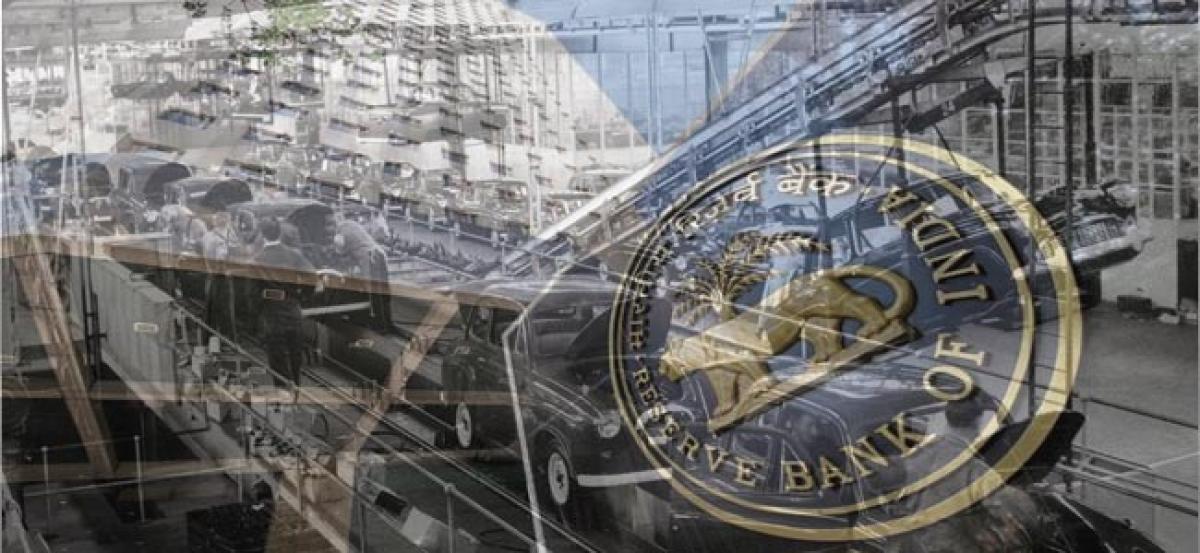Live
- Bad air: 106 shuttle buses, 60 extra Metro trips planned to make Delhiites give up cars
- WHO reports declining monkeypox cases in Congo
- CM Attends Kotideepotsavam on Kartika Purnima
- PKL Season 11: Raiding trio of Devank, Ayan, Sandeep help Patna Pirates rout Bengal Warriorz
- Food waste crisis fuels sustainable practices across APAC food & beverage industry: Report
- AI helps erase racist deed restrictions in California
- ATMIS completes third phase of troops' drawdown in Somalia
- PM Kisan Samman Nidhi scheme bringing smile to Nalanda farmers
- German economy forecast to lag eurozone growth until 2026
- CM Shinde orders stern action against hoarding of onions amid rising prices
Just In

The recent tightening of ARCs\' capital requirements will lead to consolidation in the industry and that bigger players stand to benefit from the move, says a report. The Reserve Bank last week increased the net-owned
Mumbai: The recent tightening of ARCs' capital requirements will lead to consolidation in the industry and that bigger players stand to benefit from the move, says a report. The Reserve Bank last week increased the net-owned funds for asset reconstruction companies (ARCs) to Rs 100 crore from a meagre Rs 2 crore. Last April it had increased the upfront payment requirement to 15 per cent of the asset value from 5 per cent. Crisil believes these are among a series of steps taken by RBI to strengthen the ARC ecosystem that will attract players with deep pockets, enhance transparency in asset sales, improve recoveries and open up scope for consolidation.
Given the thicket of rule changes, larger ARCs will be on a firmer footing, especially those backed by strong promoter groups with the ability and intent to infuse capital, and relatively better capability to attract capital from external sources as 100 per cent foreign direct investment is permitted in the sector, says the report. The ability and intent of promoters and investors in smaller ARCs to infuse capital will be a monitorable and would potentially be a catalyst of consolidation. According to Crisil, of the 23 ARCs, six are comfortable in terms of the revised net-owned funds requirement and other stringent norms. But those struggling to infuse capital or raise external funds and lacking in specialist manpower will get marginalised further.
"The top five players (Edelweis, JM Financial, Arcil, Kotak etc) account for around 90 per cent of total assets under management. With tighter regulations, we believe their market share will consolidate further and smaller ones may merge with larger rivals, or they could become takeover targets for large private equity investors and stressed asset funds wishing to enter the business," the report said. It can be noted that from April 1, 2017, the RBI has increased the provisioning requirement for banks investing over 50 per cent of the value of stressed assets (the limit subsequently to be reduced to 10 per cent from April 2018) sold by them in the security receipts issued in lieu.
The RBI intends to ensure that any NPA sale is a true sale conducted through a transparent process where the ARC ends up with significant skin in the game so as to maximise recoveries. The strengthened framework will affect the volume of asset sales as banks are reluctant to take adequate haircuts, says the report, adding however, it will lead to more cash- based sale which would need higher capital. Asset sales spiked in March quarter of fiscal 2017 before the new provisioning norm kicked in. According to its estimates, Rs 21,000 crore of NPAs were sold in the March quarter taking the total outstanding assets under management with ARCs to Rs 75,000 crore.

© 2024 Hyderabad Media House Limited/The Hans India. All rights reserved. Powered by hocalwire.com







